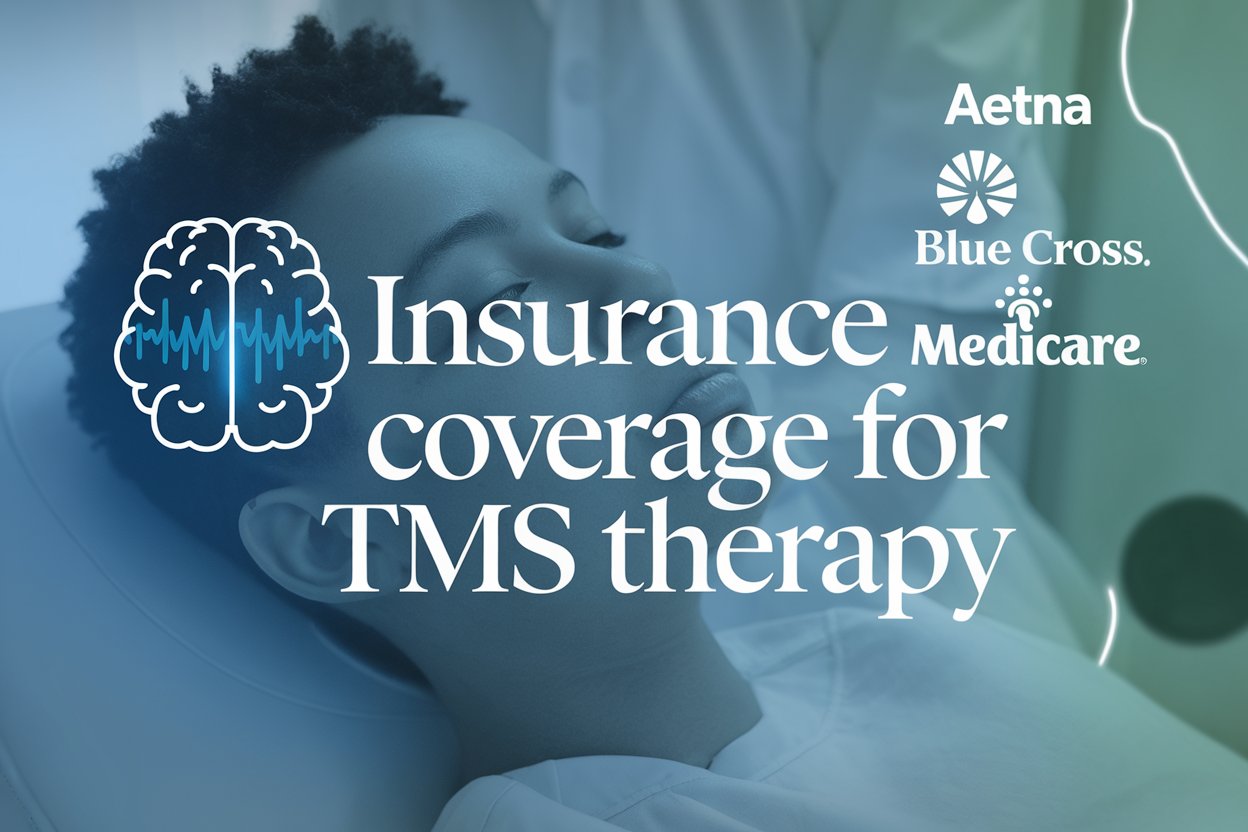What is TMS Treatment and How Much Does It Cost?
People who have depression or other mental health issues can get help with transcranial magnetic stimulation (TMS). TMS treatment costs a lot; people want to know. What is the price of TMS? Together, let’s look into this.
What is TMS Treatment?
Magnetic fields are used in TMS to stimulate brain cells that control pain. It’s used when medicine, therapy, and other treatments don’t work. Being non-invasive means that you don’t have to have surgery or put anything inside your body to get TMS. This means that a lot of people can feel safe with it.
People get TMS by sitting in a chair and having a device with a magnetic coil put on their head. This coil sends magnetic waves to some areas of your brain. These pulses help to wake up the nerve cells that manage your mood, which can help depressed people feel better.
Most TMS sessions last between 30 and 60 minutes. You’ll be awake and aware during the method. TMS doesn’t need any kind of anesthesia or sedation like some other treatments do. You are free to do your normal things right away after the session.
How Much Does TMS Cost?
The price of TMS treatment can change. The cost is based on where you live, the clinic you pick, and the number of sessions you need. About $200 to $400 is how much each TMS session costs on average. Most people need between 20 and 30 sessions to really feel better. That means that TMS treatment can cost anywhere from $4,000 to $12,000.
Factors That Affect The Cost
- Location: How much TMS treatment costs may depend on how much it costs to live where you live. Things might cost more for TMS in cities where everything else is more expensive. As an example, a TMS session in a small town might cost less than one in New York City.
- Clinic: Prices vary from one clinic to the next. Some of them might have deals or payment plans. You should call a few clinics and find out how much they charge. If you pay for more than one session at once, some clinics might give you a discount.
- Number of Sessions: It will cost more the more sessions you need. Based on your health, your doctor will decide how many sessions you need. To get the most out of their sessions, different people may need different numbers of them.
TMS Cost with Insurance
If you have health insurance, it might pay for some or all of your TMS treatment. How much you have to pay out of pocket may change a lot because of this. By calling your insurance company, make sure you are aware of its coverage for TMS therapy. If you have insurance, they may want you to try other treatments first before they will pay for TMS. This is known as “medical necessity.”
Plans that cover different things follow different rules. Different health plans may not cover all of the costs of TMS therapy. When you call your insurance company, be sure to ask about your plan and what it covers.
How Much Does TMS Therapy Cost Without Insurance?
It may cost more for TMS therapy if you don’t have insurance. A full course of TMS therapy can cost anywhere from $4,000 to $12,000 if you don’t have insurance. Some clinics let you pay over time, which can help you handle the cost. Talk to the clinic about what you can do, and they will help you make a plan that works for you.
There are also clinics that let you pay less if you have a low income. In other words, the cost of your care changes based on how much money you make. This might lower the cost of TMS therapy for people who don’t have insurance or can’t pay the full price.
There are several options you can think about if you need help paying for TMS treatment. You might be able to pay for it with a health savings account (HSA) or a flexible spending account (FSA). These are special accounts that let you save money for medical costs without having to pay taxes on it. People who need help paying for mental health treatments may also be able to find grants or other forms of financial aid. Some people also use CareCredit, a credit card for medical bills, or ask family and friends for help.
Other Ways to Pay for TMS Treatment
There are several options you can think about if you need help paying for TMS treatment. You can keep the cost down in these ways:
- Health Savings Accounts (HSAs) and Flexible Spending Accounts (FSAs): With an HSA or FSA, you can save money for medical costs without having to pay taxes on it. These funds can be used to pay for the TMS treatment.
- CareCredit: CareCredit is a credit card for medical bills that can be used to pay for TMS therapy and other medical treatments. It gives you a number of payment options that can help you spread out the cost over time.
- Private Pay: Some people decide to pay for their own TMS treatment. You might want to do this if you don’t want to use insurance or if your insurance doesn’t cover TMS therapy. A lot of clinics let you spread out the cost by setting up payment plans.
- Friends and Family: Don’t be afraid to ask family and friends for help. Most of the time, the people you care about want you to do better and may be willing to help you financially. To help you pay for treatment, they can help you pay for it or give you money or loans.
Why TMS Treatment is Worth the Cost
A lot of people think TMS treatment is worth the money, even though it can be pricey. Many people have tried other treatments but haven’t been helped. TMS can make a big difference in their lives. It can help people with depression feel better, stop thinking about suicide, and live a better overall life. A lot of people who have tried TMS say it made them feel better and made their lives better.
What to Expect During TMS Treatment
You might be curious about what to expect if you decide to try TMS treatment. Below is a simple outline of what usually takes place during a TMS session:
- Preparation: You will sit in a comfortable chair and wear a special cap. The doctor will place a magnetic coil on your head.
- Treatment: The coil sends magnetic pulses to your brain. You might hear clicking sounds and feel a tapping on your head. This part usually lasts about 30 to 60 minutes.
- Aftercare: After the session, you can go back to your normal activities. Some people might feel a little headache or discomfort, but this usually goes away quickly.
You will need to go to the clinic for multiple sessions, usually five days a week for several weeks. Your doctor will decide the best schedule for you.
Is TMS Treatment Safe?
Before beginning treatment, your doctor will discuss the risks and ensure that TMS is safe for you. TMS treatment is generally well tolerated and safe; most people do not experience serious side effects, which include mild side effects like headache, scalp discomfort, and tingling, and rare but potentially serious side effects like seizures.
Frequently Asked Questions
How much is one session of TMS?
Between $200 and $400 is what most people pay for one TMS session. This price may change depending on where the clinic is located, how much it costs there, and other factors.
How much does TMS cost on average?
Most of the time, TMS treatment costs between $4,000 and $12,000. There will be more than one session, since most people need 20 to 30 sessions to get the best results.
Why is TMS so expensive?
TMS treatment can be expensive for several reasons:
- Specialized Equipment: TMS requires advanced medical equipment that is costly to purchase and maintain.
- Professional Expertise: TMS treatments are administered by trained medical professionals who ensure the safety and effectiveness of the therapy.
- Multiple Sessions: The treatment involves numerous sessions, which adds to the total cost.
- Insurance Coverage: While some insurance plans cover TMS, not all do. This can increase the out-of-pocket expense for patients.
How many sessions of TMS do you need?
It takes 20 to 30 sessions of TMS therapy for most people to see the best results. It’s common for these sessions to happen five days a week, spread out over several weeks.
Is TMS worth the cost?
Getting TMS is worth the money for many people. It can help people who have been depressed and haven’t gotten better with other treatments. Patients often say that their symptoms and quality of life have gotten a lot better. Putting money into TMS can pay off in the long run, making the initial cost worth it.
Does insurance cover TMS for depression?
A lot of insurance plans do cover TMS therapy for depression, but not all of them do. You should talk to your insurance company to find out what your policy says. Before covering TMS, some insurance plans might want to see a prior authorization or proof that other treatments haven’t worked.
Interested in Learning More?
Call American TMS Clinics right now to find out how much TMS treatment costs and decide if it’s right for you. It’s possible that you can get a free EEG and psychiatric evaluation to help improve your mental health. Get help right away; don’t wait!
Call American TMS Clinics right away if you’re thinking about TMS therapy and want to know how much it costs. Check to see if you can get a free EEG and psychiatric evaluation.
We are willing to work with you. Getting the help you need is just a call away!





